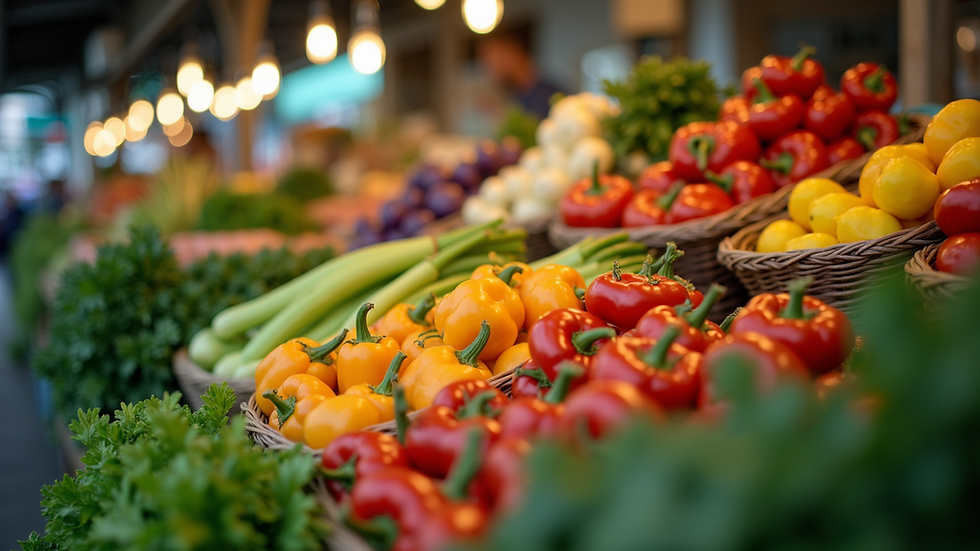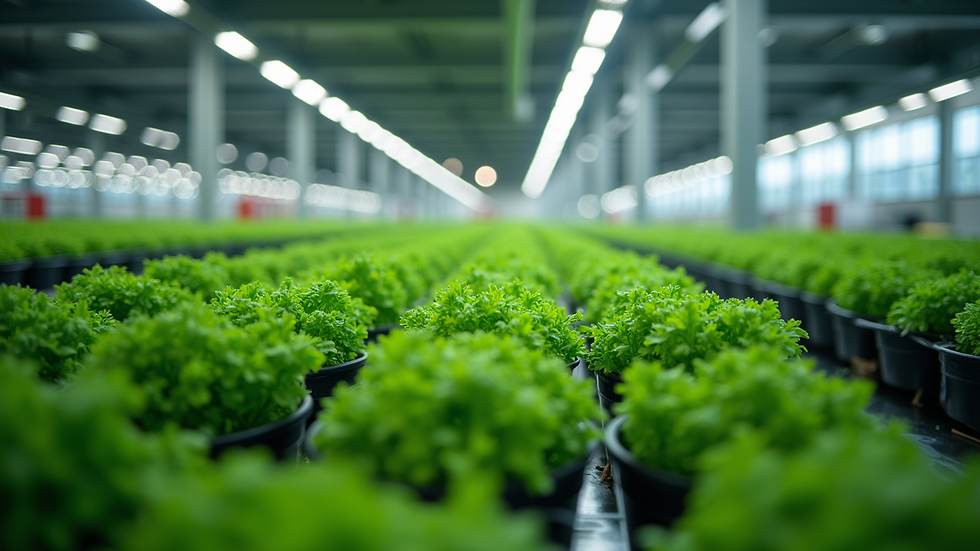Discover Latest UAE Food Market Insights for 2023
- Wild Roots
- Sep 6, 2025
- 4 min read
The UAE food industry is evolving rapidly in 2023, driven by changing consumer preferences, technological advancements, and sustainability efforts. This dynamic market offers exciting opportunities for businesses and consumers alike. Understanding the latest trends can help stakeholders make informed decisions and stay ahead in this competitive landscape.
Emerging UAE Food Industry Trends in 2023
The food industry in the UAE is witnessing several key trends that are shaping its future. One of the most notable shifts is the growing demand for healthier and organic food options. Consumers are becoming more health-conscious, seeking products with natural ingredients and minimal additives. This has led to an increase in organic farms and health-focused food brands.
Another significant trend is the rise of plant-based diets. Vegan and vegetarian options are gaining popularity, supported by innovative food technology that creates meat alternatives with improved taste and texture. Restaurants and supermarkets are expanding their plant-based offerings to cater to this growing segment.
Technology is also playing a crucial role. From AI-powered supply chain management to smart kitchens and food delivery apps, digital transformation is enhancing efficiency and customer experience. For example, automated warehouses and drone deliveries are being tested to speed up logistics.
Sustainability remains a top priority. The UAE government and private sector are investing in reducing food waste, promoting recycling, and encouraging sustainable packaging. Consumers are increasingly favoring brands that demonstrate environmental responsibility.

Key Drivers Behind UAE Food Industry Trends
Several factors are driving these trends in the UAE food market. First, the diverse and cosmopolitan population demands a wide variety of cuisines and dietary options. This diversity encourages innovation and variety in food products and services.
Second, government initiatives such as the UAE Food Security Strategy 2051 aim to enhance local food production and reduce reliance on imports. This has spurred investments in agri-tech, vertical farming, and aquaponics, which are becoming more common.
Third, the rise of e-commerce and digital platforms has transformed how consumers shop for food. Online grocery shopping and meal kit delivery services have surged, especially after the COVID-19 pandemic accelerated digital adoption.
Fourth, increased awareness about health and wellness is influencing purchasing decisions. Consumers are reading labels more carefully and opting for functional foods that offer added health benefits, such as probiotics and superfoods.
Finally, the UAE’s commitment to sustainability and climate action is encouraging businesses to adopt greener practices. This includes sourcing locally, minimizing plastic use, and supporting circular economy models.

Innovations Shaping the Future of Food in the UAE
Innovation is at the heart of the UAE’s food industry transformation. One exciting development is the use of vertical farming and hydroponics to grow fresh produce year-round in urban settings. These methods use less water and land, making them ideal for the arid climate.
Food tech startups are also introducing lab-grown meat and alternative protein sources such as insects and algae. These options promise to reduce the environmental footprint of food production while meeting protein demand.
Smart packaging solutions are gaining traction, with features like freshness indicators and biodegradable materials. These innovations help reduce food waste and improve shelf life.
Additionally, AI and big data analytics are being used to predict consumer trends, optimize inventory, and personalize marketing. Restaurants are leveraging technology to create customized menus based on customer preferences and dietary restrictions.
Finally, blockchain technology is enhancing food traceability and safety. Consumers can scan QR codes to verify the origin and quality of their food, building trust and transparency.

Practical Recommendations for Businesses in the UAE Food Market
To thrive in the evolving UAE food industry, businesses should consider the following strategies:
Embrace Health and Wellness Trends
Develop products that cater to health-conscious consumers. Highlight organic, natural, and functional ingredients on packaging and marketing materials.
Expand Plant-Based Offerings
Introduce vegan and vegetarian options in menus and product lines. Collaborate with food tech companies to innovate in this space.
Leverage Technology
Invest in digital tools for supply chain management, customer engagement, and data analytics. Explore automation to improve efficiency.
Focus on Sustainability
Adopt eco-friendly packaging and reduce food waste through better inventory management. Communicate sustainability efforts transparently to customers.
Enhance Online Presence
Strengthen e-commerce capabilities and partner with delivery platforms. Use social media and influencer marketing to reach wider audiences.
Localize Supply Chains
Support local farmers and producers to reduce dependency on imports. This aligns with national food security goals and appeals to consumers valuing local products.
By implementing these recommendations, businesses can position themselves for success in the competitive UAE food market.
Looking Ahead: Opportunities and Challenges in the UAE Food Sector
The UAE food industry is poised for continued growth and innovation. Opportunities abound in areas such as sustainable agriculture, food tech, and health-focused products. The government’s support and the country’s strategic location as a trade hub further enhance prospects.
However, challenges remain. The harsh climate limits traditional farming, requiring investment in advanced technologies. Supply chain disruptions and fluctuating global commodity prices can impact costs. Additionally, meeting diverse consumer expectations while maintaining affordability is a delicate balance.
To navigate these challenges, collaboration between government, industry players, and research institutions is essential. Continuous market research and adaptation to consumer trends will also be critical.
For those interested in deeper analysis and detailed data, exploring uae food market insights can provide valuable information to guide strategic decisions.
The UAE food industry in 2023 is a vibrant and evolving landscape full of potential. Staying informed and agile will be key to capitalizing on emerging trends and building a sustainable future.



Comments